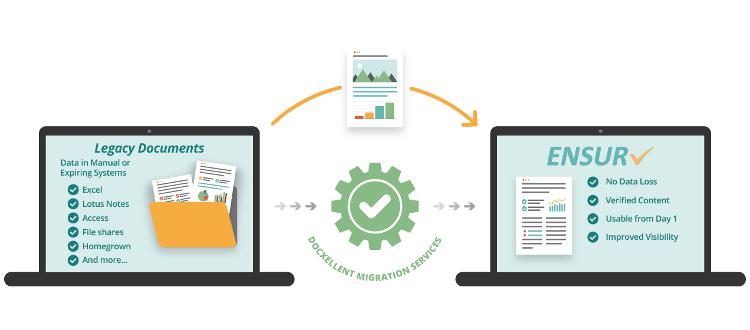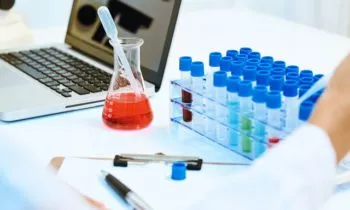.png?width=810&name=2021s%20Biggest%20Trends%20for%20Medical%20Device%20Companies%20(1).png)
Twenty-twenty was a highly impactful year for the medical device industry, primarily due to the challenges brought on by the COVID-19 pandemic. As we move into 2021, there are even more changes on the horizon. This article will discuss four developing trends and how they will impact medical device companies, including growth in telemedicine and the utilization of artificial intelligence.
1. Growth in TelemedicineMany healthcare providers have been wary about utilizing telemedicine in their daily routines, with major concerns tied to an uncertainty around reimbursement and insurance coverage. However, the COVID-19 pandemic has made remote medicine more important, more relevant, and more accessible than ever, as reimbursement has become more widely accepted. With an increase in wearable medical devices, allowing doctors to measure patient health parameters such as heart rate and respiration remotely, telemedicine continues to become more accessible.
The integration of telehealth into the healthcare field has immense potential in providing care to the rural regions of the country that have never had the ability to access trained health professionals. With the integration of telehealth monitoring, patients will be able to not only communicate with their physicians directly, but also be guided in treatment plans from their own homes through the use of cell phones, tablets, and computers.
Medical device companies have already started to implement telemedicine into their practices moving into 2021. For example, patients currently use medical devices at home temporarily, but are usually required to return it soon after receiving a diagnosis. Companies are now creating medical devices to be used for longer term remote monitoring that will likely rely on their ability to consistently access the internet and connect with the doctor’s office. Medtronic even recently developed a mobile app to help connect pacemakers to patients’ smartphones to help them better use health data for remote monitoring.
2. Recalls on the RiseFaulty medical devices not only endanger patient lives, but they can also mean the downfall of your company. According to Sedgwick’s “Recall Index 2020 Edition 2”, recalls within the medical device industry are steadily increasing – stating that recall activity surpassed “300 recalls for the first time since Q2 2018.” The highest contributing factor is said to be safety protocols within these companies.
Despite this spike, the majority of patients are still willing to put their trust in the medical professionals around them. However, with the number of recalls increasing, your company needs to take quality seriously. In some cases, recalls can be the result of unforeseen issues with complex products – such as the Smiths Medical infusion pump. In many other cases, medical device manufacturers have been known to skimp on quality to speed up their time-to-market. Moving into 2021, quality needs to become a focus throughout the medical device product lifecycle. The solution lies in better systems for quality management and the use of agile risk mitigation tools to prevent recalls from effecting your business.
3. Increased Traceability and LabelingDue to an upheaval of medical device regulations laid out by the European Parliament set to go into effect later this year, medical device companies are expected to improve their methods of traceability and labeling. The new regulations, which stress patient safety, traceability, and transparency, will impact all medical device developers as they are required to comply. It will prioritize fundamental changes throughout the entire product lifecycle and governing bodies will be expected to provide better, more comprehensive regulatory guidance to companies across the medical device industry.
As the medical device manufacturing pipeline becomes more rigorous, it is vital that companies document every aspect of this process in a way that they can easily retrieve and report on information. Manually maintaining these details is possible, but it makes documenting and recalling data inefficient and riddled with human error. A better approach requires a management platform that lets teams trace production data, workflow progress, and presents it in a clean way that makes searching for information simple.
4. Use of Artificial Intelligence (AI)As we reported in a previous article, Artificial Intelligence (AI) software was already becoming a major trend within the medical device industry in 2020. The use of this technology is only set to increase in the coming years. Currently, medical device manufacturers use these systems to modernize their products to better assist healthcare providers and advance patient care. The future of AI, however, is beginning to shift toward precision medicine, drug discovery, and medical imaging. Take cancer treatments, for example; through the use of AI’s pattern recognition, doctors can prescribe personalized treatment plans tailored to a patient’s genetic makeup and lifestyle.
AI and machine learning is transforming healthcare as it’s being used to diagnose conditions and diseases, identify trends, and create efficiencies in both the research laboratory as well as the exam room. The FDA believes AI and machine learning has great potential to provide even more personalized medicine and targeted treatments for patients. Because of this, they introduced a regulatory plan that will allow both manufacturers and the FDA to evaluate and monitor AI products from pre-market development through post-market performance. In this way, the beneficial advancement power of artificial intelligence and machine learning software can be accepted by the FDA’s regulatory oversight, all while assuring patient safety.
The future of medical device development is now, and it is becoming overwhelmingly powered by advanced technology. Telemedicine and artificial intelligence are becoming common tools to reach people who are safely social distancing for health. And a call for increased quality and traceability will revolutionize the way current medical device companies manufacture products for years to come.
DocXellent’s ENSUR Document Management Software is fully equipped to help your company tackle the new world of medical device technology seamlessly all while maintaining FDA compliance. Contact us today to learn more.




























